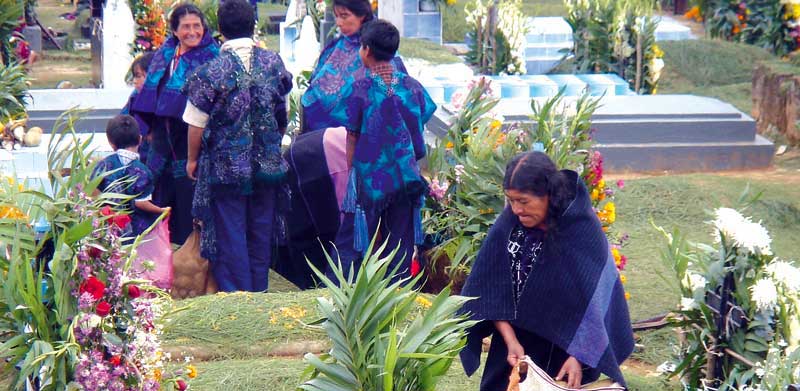|
The Center for Global Justice is planning a "Day of the Dead" adventure to Chiapas this fall. From October 28th to November 4th, a group of no more than 10 will experience the blend of indigenous and catholic ritual that entwines in this regions honoring of those that have passed. It's a very memorable few days filled with incredible beauty and traditions unique to the region.
From our base in San Cristobal de las Casas, a town of European flavor, the group will also visit several indigenous communities, each with its own language, dress and customs. In this state of geographically and historically distinct communities, there are some 11 different languages spoken. And of great importance, this is the area that gave birth to and continues to nurture the Zapatista's, a movement that inspires many in the reality that another world is not only possible, but is being practiced successfully in everyday life, here in Chiapas.
The Center's Chiapas trips have been very popular. The small group size, wonderful local bilingual guide and progressive educational itinerary insure a trip that will be enriching.
|
$250 Deposit Required
Balance due by Sept 1
Group size limited to 10 people
Cost per person:
DOUBLE - $1100
SINGLE - $1300
Costs include:
- Roundtrip flights from and to Mexico City to Tuxtla.
- Airport transportation in Chiapas.
- Bilingual guide.
- 7 nights hotel stay.
- Local transportation to all planned activities.
- Entry fees to all planned activities.
To secure your place, mail a check for $250 USD per person to:
Center for Global Justice,
5802 Bob Bullock Loop,
C1 #84, Laredo TX 78041
If you are mailing a check,
be sure to email admin@globaljusticecenter.org to alert us that your reservation is in the mail.
Balance due September 1st.
For more info, contact Olivia at admin@globaljusticecenter.org
|
| Nov 1st |
Na Bolom; the former home of Franz and Gertrude Bolom and now a museum dedicated to the protection of the Lacandon Maya and the preservation of the Chiapas rain forest.
DESMI; a local non-profit that supports a "social economy" and many of the indigenous programs around sustainable agriculture, social justice and collective economic models.
|

